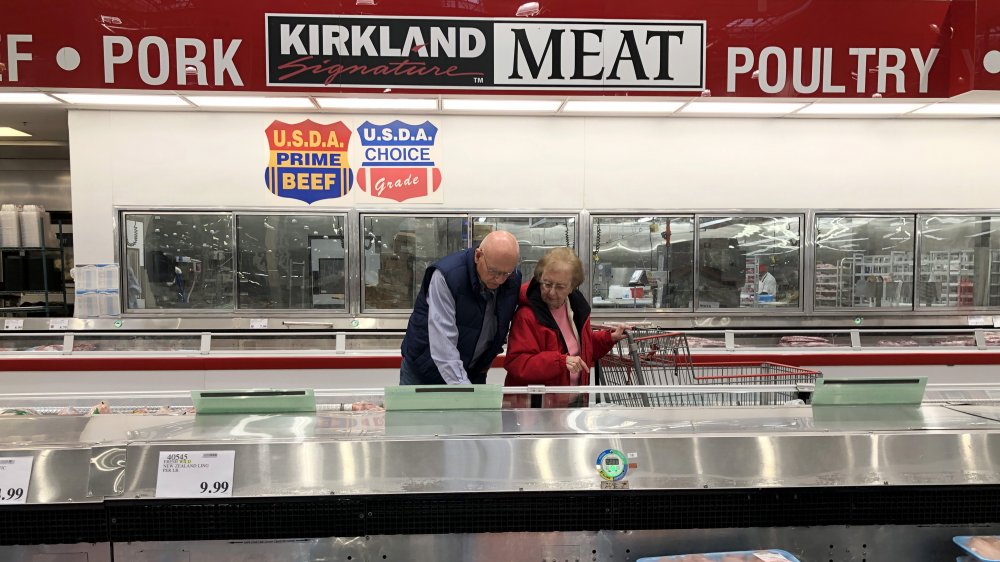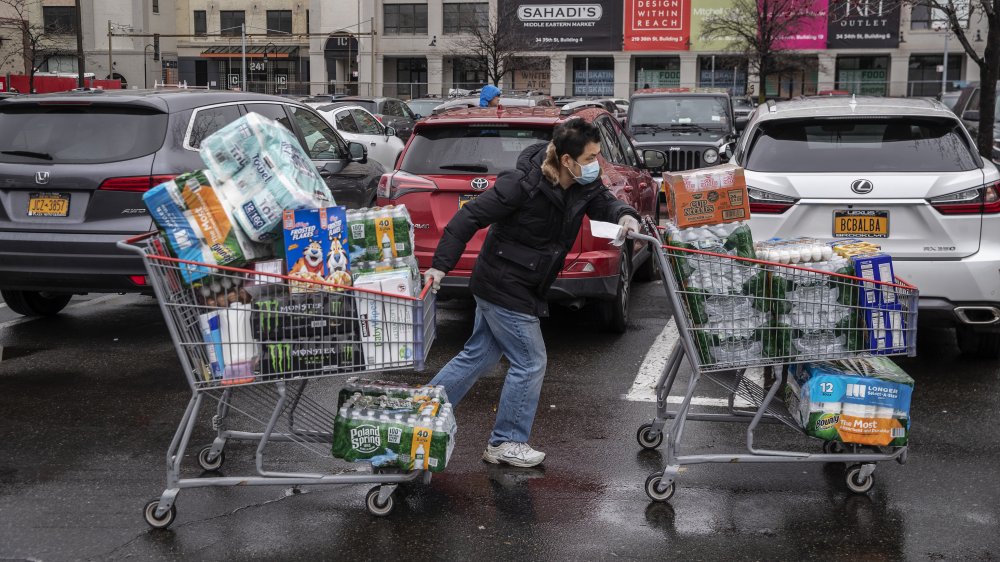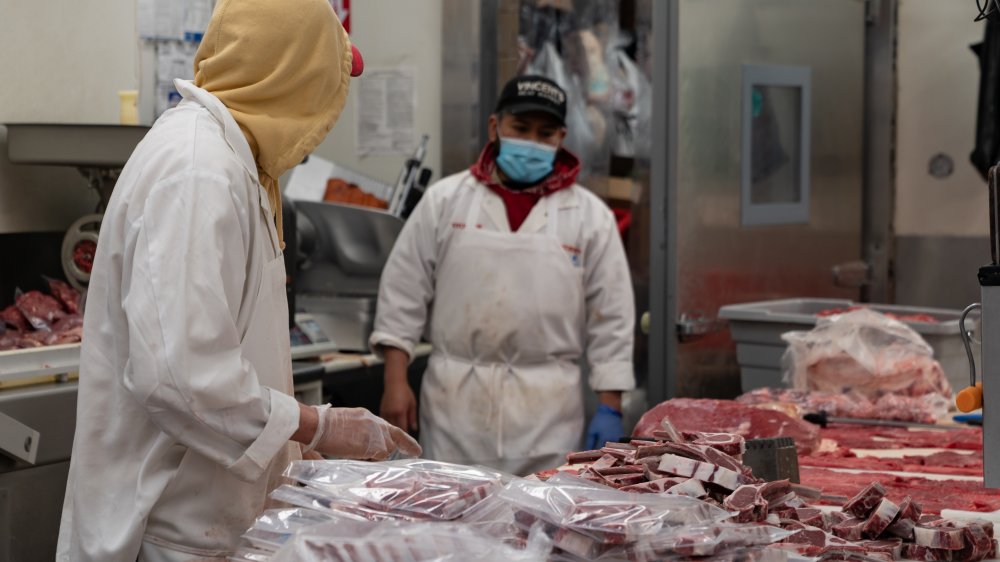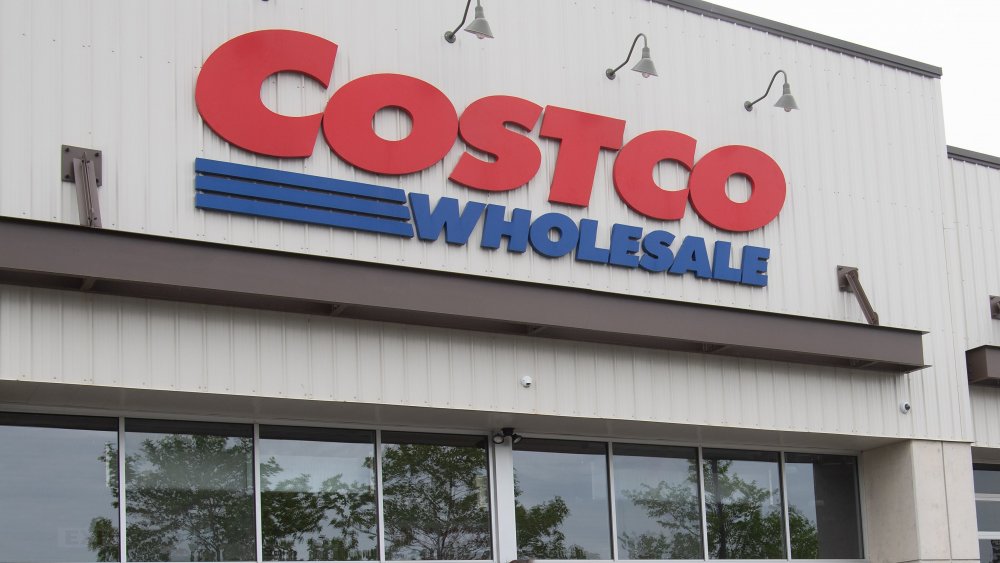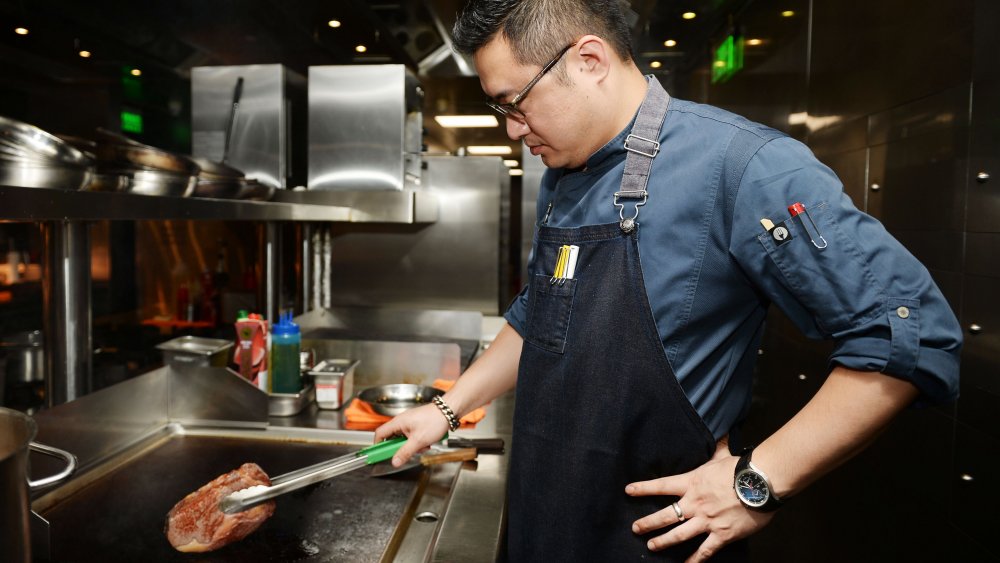Why Costco Is Now Limiting The Purchase Of Another Product
First it was paper products (toilet paper and paper towels), household cleaning products, and hand sanitizers. Now, it's meat. Over the weekend, Costco said via its website that effective immediately, the store will be limiting fresh meat purchases involving beef, pork, and poultry to three items per customer. The limits, Costco says, are there to make sure more members are able to get items that they both want and need. Coscto also promised that, "our buyers and suppliers are working hard to provide essential, high demand merchandise as well as everyday favorites".
Costco isn't the only grocery chain that has decided to control the amount of meat its customers can buy. On May 1, Kroger also said it would start to limit sales of ground beef and fresh pork products at some of its stores. A Kroger spokesman told Today, "We feel good about our ability to maintain a broad assortment of meat and seafood for our customers because we purchase protein from a diverse network of suppliers. There is plenty of protein in the supply chain; however, some processors are experiencing challenges."
Stores impose limits to prevent panic-buying
Putting limits on the number of things we can buy is not a new thing. In fact, we've seen it happen to several essential items since the pandemic kicked into gear back in March, from toilet paper, to paper towels, and from cleaning supplies, to hand sanitizer. In explaining the toilet paper shortages back in April, Cornell University professor Karan Girotra said that store limits are not imposed because essentials are running out, but to keep that from happening (via Grow). Because retailers are only allowed to get their hands on a certain amount of stock each time, they need to prevent shoppers from hoarding. "It's about making sure more people have enough of what they need, rather than some people having some of what they need," he shared.
Meat processing plants are a coronavirus hotspot
You might argue that the White House move to invoke the Defense Production Act to keep meat processing plants open was a sign that a shortage was nigh. Issuing that executive order meant the plants are considered critical infrastructure that must stay open, because the plant closures would "threaten the continued functioning of the national meat and poultry supply chain" (via Vox).
But what the executive order does is forces workers to return to an industrial coronavirus hotspot, where at least 5,000 cases have been linked to meat processing plants, with 20 deaths. This could be because social distancing is challenging at meat processing plants, and workers may show up even if they are ill, or aren't showing symptoms.
Employee shortages have played a big part
It's important to note meat companies are attempting to implement safety measures. "The safety of our team members is our top priority," Tyson said in a statement (via Bloomberg). "We've been screening worker temperatures, requiring protective face coverings and conducting additional cleaning and sanitizing." The company is "also implementing social distancing measures, such as installing workstation dividers and providing more breakroom space."
Meanwhile, America's biggest meat companies, Tyson Foods, Smithfield Foods, and JBS USA, have so far closed 20 plants that process pork and beef products. Those plants were responsible for 25 percent of pork production and 10 percent of beef production in the US. When these plants close, farmers end up having to destroy millions of chickens, pigs, and cows because there is nowhere to send them to slaughter.
In short, there's plenty of meat and protein out there, but American farmers are unable to sell directly to American consumers. And although potentially frustrating for shoppers, Costco's meat limit for members may help compensate for the meat shortage.
Restaurants are starting to reopen
Yet one more reason why meat is starting to be in short supply at Costco and other grocers is the fact that, during the pandemic, much of the meat supply had been diverted from the restaurant pipeline to supermarkets, but now that restaurants are opening up again, they are themselves in need of meat. Restaurant Business shares the industry's fear that this new demand will further limit access to a product whose supply chain was already threatened — and, in fact, we've started to see this play out already, as reports come in that certain Wendy's restaurants are having to go burger-free due to being unable to source fresh beef for their burgers.
With ramped-up demand from restaurants on one side, and continuing meat plant closures on the other, the future is looking a little murky for meat-eaters looking to stock up their own freezers. While vegan meat substitutes were one of the few items nobody seemed to crave during months of lockdown, it looks like we may all have to give Beyond Burgers another chance if we want to have anything to barbecue this summer.
